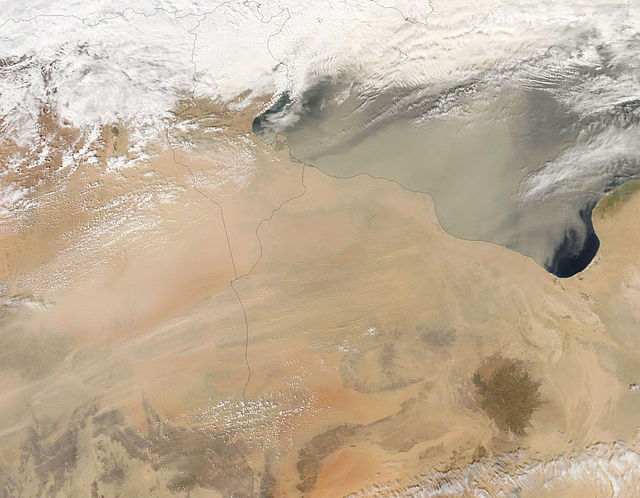A particulate air filter is a device composed of fibrous, or porous materials which removes particulates such as smoke, dust, pollen, mold, viruses and bacteria from the air. Filters containing an adsorbent or catalyst such as charcoal (carbon) may also remove odors and gaseous pollutants such as volatile organic compounds or ozone. Air filters are used in applications where air quality is important, notably in building ventilation systems and in engines.
Used auto engine air filter, clean side
Used auto engine air filter, dirty side
Auto engine air filter clogged with dust and grime
Low-temperature oxidation catalyst used to convert carbon monoxide to less toxic carbon dioxide at room temperature. It can also remove formaldehyde from the air.
Dust is made of fine particles of solid matter. On Earth, it generally consists of particles in the atmosphere that come from various sources such as soil lifted by wind, volcanic eruptions, and pollution. Dust in homes is composed of about 20–50% dead skin cells. The rest, and in offices and other built environments, is composed of small amounts of plant pollen, human hairs, animal fur, textile fibers, paper fibers, minerals from outdoor soil, burnt meteorite particles, and many other materials which may be found in the local environment.
A dust storm blankets Texas houses, April 1935
Three years of use without cleaning has caused this laptop heat sink to become clogged with dust, and it can no longer be used as it may catch fire.
Domestic dust on a finger
Large dust storm over Libya








